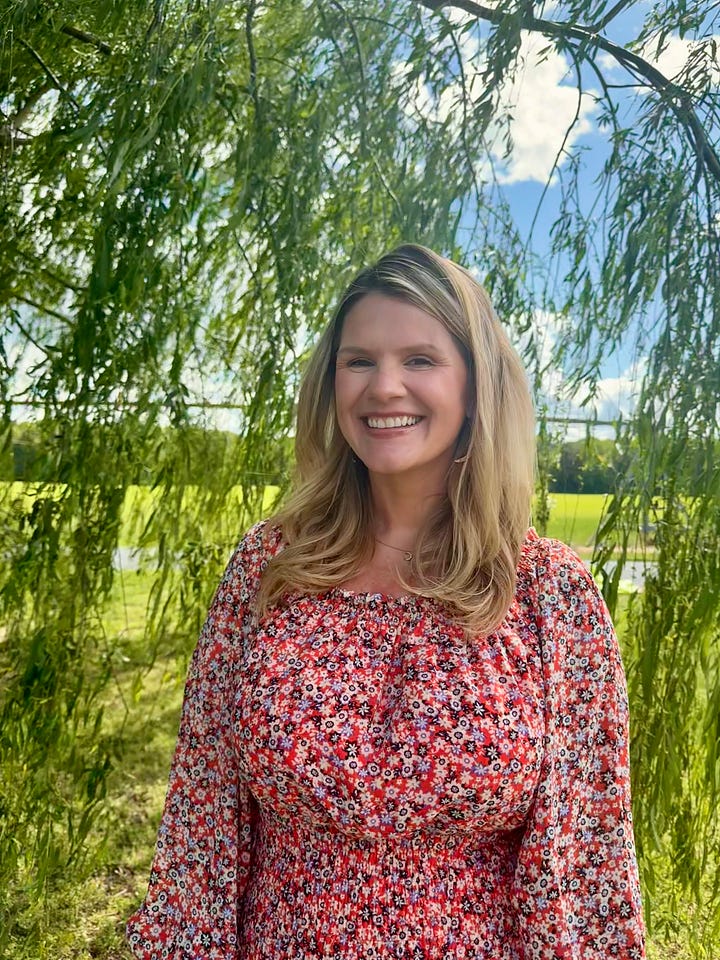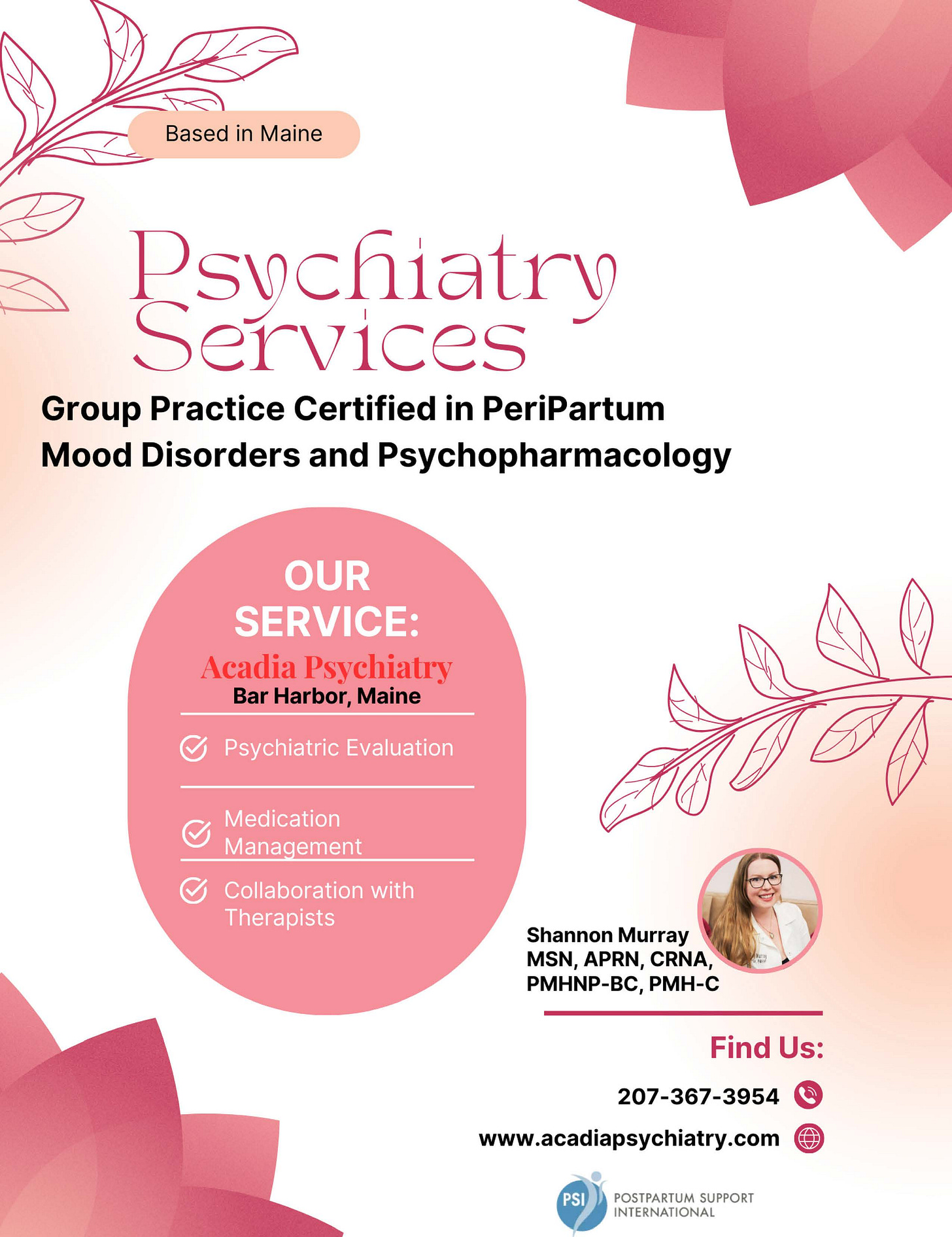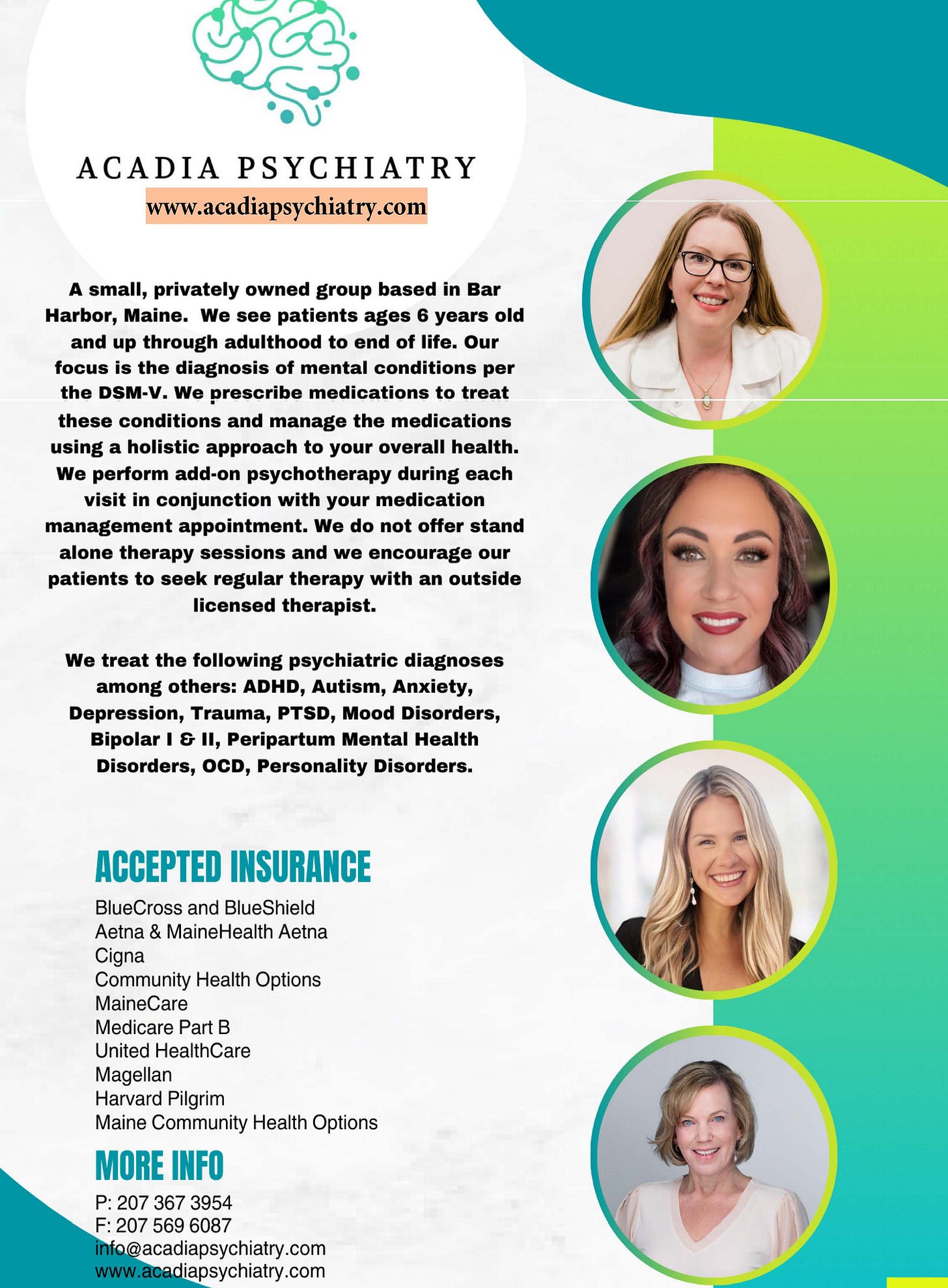More Help, Closer to Home: Acadia Psychiatry Grows to Serve Maine Patients




MOUNT DESERT—According to NAMI-Maine, more than 200,000 adults in the state have mental health conditions. Local police logs every week often have moments of residents and visitors to Mount Desert Island in crisis.
“Of the 65,000 adults in Maine who did not receive needed mental health care, 46.1% did not because of cost. 8.1% of people in the state are uninsured,” NAMI writes.
Another issue, especially in rural areas, is finding people to diagnosis and subscribe medication for those who need it.
“The need is overwhelming. It’s quite sad. It’s sad to hear that people are having to wait six months to a year for care,” Shannon Murray said when she first opened Acadia Psychiatry, in Mount Desert at 1049 Main Street.
Now, three more practitioners are joining Shannon Murray at Acadia Psychiatry, which is based in Mount Desert and provides services throughout Maine. Murray also provides services for local hospitals.
“There's been a lot of changes. So we are now a four provider group, which is amazing, and I'm super excited about this kind of organic growth,” Murray said this week. “My focus right now is still on serving the people of Maine.”
WHAT THEY DO
The group sees patients from six years old through end of life, with a focus on diagnosing mental conditions using the DSM-V and then prescribing medications to treat conditions and managing the medications, with a holistic approach to the patient’s overall health.
During each visit, the group will perform add-on psychotherapy, but this is in conjunction with medication management appointments, not stand-alone therapy sessions.
The group treats multiple diagnoses including: ADHD, autism, anxiety, depression, trauma, PTSD, mood disorders, bipolar 1 & 2, peripartum mental health disorders, OCD, and personality disorders.
Murray is joined by Holly Newton (MSN, M.Ed., PMHNP-BC, PMH-C, ADHD-CCSP), Julie Anne Kinhart (CRNP-PMH), and Shannon Barnicle (MSN, APRN, PMHNP-BC).
Like Murray, Newton is a Psychiatric Nurse Practitioner. Murray also holds a Masters of Science in Nurse Anesthesia with honors and is a nurse anesthetist. She specialized in Spokane, Washington in Obstetrical Anesthesia and Trauma Anesthesia.
Each of the providers have multiple licenses. There is an alphabet of letters behind all the women’s names: MSN, CRNP-PMH, APRN, PMHNP-BC. That last group of letters stands for psychiatric-mental health nurse practitioner and that’s part of the difference in the practice.
“Psychiatry care is focused on diagnosing mental conditions based on the DSM-5, which is a manual that psychiatrists and psychiatric mental health nurse practitioners and psychologists and therapists all use to diagnose what we call mental health disorders or mental health conditions,” Murray explained. “So, we diagnose things like anything from general anxiety disorder, major depression, bipolar type 1, bipolar type 2, post-traumatic stress disorder, ADHD, autism, personality disorders, schizophrenia, obsessive compulsive disorder, postpartum depression, postpartum anxiety. So all of those things that are in the DSM-5.”
That diagnosis involves an initial intake, and looking at the patient’s life and history, the events that have happened prior to their visit where what is concerning them is looked at and evaluated.
Murray will ask questions.
“Why have they initiated contact with us? What are they trying to make better as far as what symptoms are they trying to address and what kind of dysfunction are they having?” she said. “And, of course, that isn't all done in just one appointment. This is a relationship that is being developed over time. And so once we make diagnoses, then we come up with a plan with the patient to prescribe appropriate medications to try to target those things that we're trying to improve or alleviate.”
Those are the key pieces: the diagnosing and the prescribing, finding the right medication and the management of that medication.
And then there is some therapy involved in each session.
"There's a lot of educating about what the patient should be looking out for or expecting from the medication standpoint, and then also what they can be doing in their lives as a more holistic approach to try to reach their mental health goals,” Murray said. “So that's what we do. And that is different than what exactly a psychologist does or a full-time therapist does.”
MAINE’S NEED
“So the reason why we have grown is because, number one, I feel like we are in a mental health crisis in America,” Murray said.
But Maine’s smaller population and much of its rural nature also provides some difficulties for people looking for mental health treatment.
“Maine is particularly strained because of the ratio of psychiatric and mental health providers to the population. And I think one source that I pulled, it was something like, roughly for every 200 citizens, there's one provider,” Murray said.
In Maine, particularly in rural parts, the problem isn’t just finding mental health providers. It’s also being treated in hospital emergency rooms efficiently.
According to personal injury law firm H&P Law, the state is among the top ten states in the country where mental health patients have the longest wait times in emergency rooms, ranking sixth with an average wait of 355 minutes.
For Murray, and her fellow practitioners, the goal is for the patients to be seen and heard and diagnosed and treated well before emergency room interventions.
In Maine, a recent study showed that there are more mental health providers in the state in 2024 (roughly 12,000) than there were in 2019 (approximately 7,500), but it’s still not a lot.
News Center Maine interviewed Jayne Van Bramer, CEO of Sweetser, a non-profit behavioral health provider who told the station, “Workforce shortages are really at the heart of our access problems.”
The largest shortage was clinical positions. Those require the most training and education and degrees.
INSURANCE DIFFICULTIES
”Many providers, whether that be therapists, whether that be psychologists, or whether it's psychiatry people, a lot of them are moving away from accepting insurance because of the terrible, terrible hoops we have to jump through. And I would say that if insurance would just stop playing games, I spend, unfortunately, I spend a tremendous amount of time fighting with insurance companies to get paid,” she said.
Though much of the group’s administrative time involves getting reimbursed from insurance companies or MaineCare. Accepting those patients, despite the reimbursement issues, is something Murray is passionate about.
“It’s an ethical choice because I want the community to be healthy, and I want Maine to be healthy, and we have a large Maine care population, just like any state, and Medicaid, and they deserve to be, they deserve to have access to mental health care, too,” Murray said.
The Bar Harbor Story is generously sponsored by Rick Osann Art.
HOW TO CONTACT ACADIA PSYCHIATRY
Phone: 207-367-3954 | Fax: 207-569-6087
In-person appointments: 1049 Main St, Ste. 2S Mount Desert, ME 04660
Mailing address: 55 Cottage St, PO Box 540, Bar Harbor, ME 04609
LINKS TO LEARN MORE
https://www.springerpub.com/blog/the-ins-and-outs-of-being-a-pmhnp-bc/
https://namimaine.org/mental-health-in-maine/
DHHS paper on Hancock County Mental Health
Crisis Guide: Toolkit for Navigating a Mental Health Crisis via NAMHI
https://data.cms.gov/provider-data/dataset/apyc-v239
Follow us on Facebook. And as a reminder, you can easily view all our past stories and press releases here.
If you’d like to donate to help support us, you can, but no pressure! Just click here (about how you can give) or here (a direct link), which is the same as the button below.
If you’d like to sponsor the Bar Harbor Story, you can! Learn more here.











